In King Kirby, the life of iconic comic book creator Jack Kirby makes its theatrical debut as part of the 2014 Comic Book Theater Festival in New York City. Leading up to its opening on June 20, playwrights Crystal Skillman and Fred Van Lente took some time to discuss the legacy of Kirby’s life in comics, the theatrical process, and the Kickstarter campaign that’s helping to bring the story to life.
Hello Crystal and Fred. It is very clear to me from reading about this project that you both have a tremendous love and respect for Jack Kirby. How did that relationship begin? Do you remember your first introductions to his work?
Crystal: Bizarrely enough, I realized when talking to the other day – the first day I realized who Jack was I was watching Superman: The Animated Series in 1998!
Fred and I had been together since ’96, and I very much loved graphic novels. I was lucky enough to see the MOMA show of Art Spiegelman’s Maus! So to me there was no doubt that comics were art and art was comics and I just loved them.
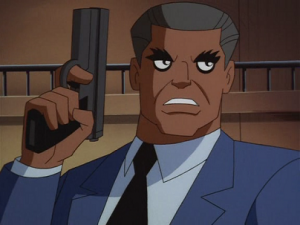 While dating Fred in those early days I was getting to know a whole new world of comics just by getting to know his close friends – Ryan Dunlavey, Steve Ellis and Jamal Igle! Just by coming over I was getting brought into this world by watching them all create.
While dating Fred in those early days I was getting to know a whole new world of comics just by getting to know his close friends – Ryan Dunlavey, Steve Ellis and Jamal Igle! Just by coming over I was getting brought into this world by watching them all create.
Of course, when not creating most of us would be watching cartoons! When I saw the death of the character Dan Turpin on the series (the character was based on how Kirby looked), I saw at the end that the episode was dedicated to Jack Kirby.
When I asked about Kirby, it was clear even in speaking about his work that Fred and his friends had such a passion for his work. I also realized many of the characters I was seeing in those Superman episodes, dealing with the Fourth World and Darkseid, were some of my favorite characters I’d seen.
I picked up New Gods and started to realize the influence of Kirby on comics, the art world, and pop culture in general. It’s astounding how I didn’t know his name until then. That always stuck with me.
Are there aspects of your interest in comics that were inspired or bolstered by Kirby’s influence?
Crystal: For sure, the impact Kirby has had on comic book creators today is amazing. There in that little house on Webster Place in Brooklyn, I was seeing it among Fred’s friends – their passion and reverence for Kirby. Not unlike, I’d say, how we talk about some of our play-writing greats who broke through, and their influences on my generation – Tony Kushner, Caryl Churchill, Susan Lori Parks, David Henry Hwang, Lynn Notage, to name a few.
And Fred, how did the “King of Comics” specifically affect your career trajectory in the comics industry?
Fred: I started out as a kid reading ’70s reprints of the Marvel work, then as a college student I encountered New Gods for the first time and it blew me away.
The sense of adventure, the infectious inventiveness – all this has infused my own work in the superhero genre. I’m one of these guys who’s often described as making “fun” comics; I don’t see how that’d be possible without Kirby’s influence.
Fans are most familiar with Kirby’s “product”: the characters and comic books that are now the foundation of his artistic legacy. Without giving too much away, how incomplete is that portrait of the man?
Crystal: Even in talking about the show with those outside of comics, the urgency and need to tell Jack’s story has become pretty clear. While Kirby is known in comics circles, his name doesn’t really ring a bell with those unfamiliar with comics, but his images do.
Every time I talked about our play to those outside of the comics industry, friends immediately said – “Ohhhh, like that book – The Adventures of Kavalier & Clay!” Most folks didn’t realize that the world and events created in Michael Chabon’s novel were inspired by much of Jack’s life.
That happened so often, I use it myself now as a touchstone when talking about the play. BUT when you saw Kirby’s artwork – it’s instantly recognizable. Much of our play is an investigation of how could that happen? As Fred has been saying, do people know where their pop culture comes from? It’s not created by a machine – it’s art created by people.
In getting to know the artist behind the image, suddenly you’re in the middle of a whole other story. Luckily there are so many interviews with Jack, there is much to access on his feelings of the events of his life. But of course, some of his thoughts contradict each other. Which, for a dramatist, is exciting.
The play asks “Who is the creator of a story?” In his life, Kirby’s fight to be known as a creator, and to work on his own characters, is an inspirational one for artists because it brings up a great point; if an artist DRAWS the story – in comics, which is a marriage of words and pictures – isn’t that just as important as the writer of the script?
Similarly, I imagine that Kirby’s close association with the comic medium presents its own challenges when developing the story for the theatre. What was the inspiration to tell this story theatrically? Moreover, how do you approach the story theatrically while still making it recognizably Jack Kirby?
Crystal: What makes the play unique to me is you’re following several key players, growing from the very birth of comics as its own medium over several years. Honestly, there’s a real wonderful Glengarry Glen Ross feel in the offices scenes – only with comic book creators.
You really feel like a fly on the wall watching how Kirby creates and struggles with these office politics. For many, I think they’ll feel like they’re getting to go “backstage” in some ways and really get not only how the comics industry was formed, but also the amount of joy, pain, sweat, and tears that goes into creating a comic book.
The play for sure follows Kirby and his own investigation of his life. We show more how the events in his life affected his style. So there’s a very grounded sensibility to that portrayal. But in that style, in terms of theatrics, there is a real heightened sense to the story we’re seeing unfold on stage.
In the writing, I think Fred did a terrific job of capturing the frenetic energy of Kirby. John Hurley has a wonderful theatrical style to his direction and he captures this dynamic energy really well with the actors and his staging.
Steven Rattazi, a brilliant actor who readers might know as Dr. Orpheus on Venture Brothers, has created a Kirby that is really unique, I think. He captures the spirit and drive of Jack, while allowing us to hear his inner thoughts on what he’s discovering in this most incredible life …
When writing this kind of work, as I discovered in my play Geek, set at an animation convention, it’s important to identify with the character in this journey, then build the fantasy out from there. Kirby is our way into the play, and that distinction is important.
The play opens at one of the greatest crises of Kirby’s life – after his death. The Sotheby’s auction of his work. We know what’s at stake, what has been lost, but how? The play dives into that question and, along the way, Kirby questions his own choices.
All I know is that I helped Fred work on it, I know the story, and I’m still engrossed at every rehearsal. It’s a really unique play in how it engages with telling the story of such an important figure in history. We’re so excited to share this play with an audience.
Working together on this project, you are both a literal and figurative marriage of the two different art forms. Has the collaborative process produced any major surprises for either of you? Is there any particular discovery that stands out?
Crystal: One of the greatest joys was discovering how much Fred loves rehearsal! What makes theater so unique and such a joy is that the words and actions you write come to life right there in front of you.
Rehearsal is all about creating the beats in a play that we’ll see unfold – how the conflicts climax and bring us to a new place of discovery as an audience. Being there as a writer, in the room, with actors making that come to life, is a very exciting experience. For me, after having several productions, it’s wonderful to see a writer as accomplished as Fred discovering this joy. Through his eyes, it’s reminded me about what I love about creating live theater.
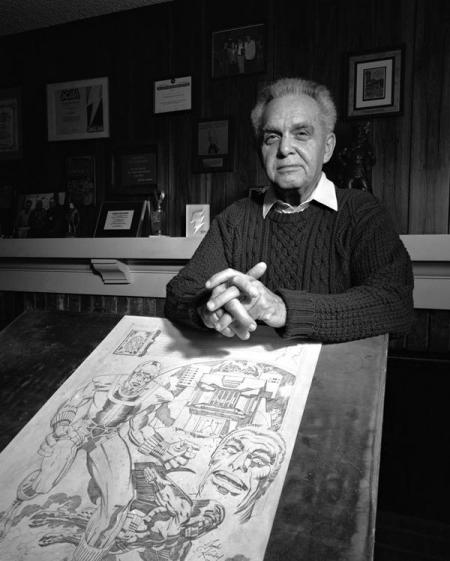 As for a specific discovery, in early drafts, while we saw scenes with Stan, there was no final confrontation. When working on the play, I knew this moment had to happen, but how it happens must be truthful to history and also to both sides, as there are such different viewpoints. I wrote a draft of that scene, which Fred only made stronger in a rewrite. It’s very moving and true about the art of creation.
As for a specific discovery, in early drafts, while we saw scenes with Stan, there was no final confrontation. When working on the play, I knew this moment had to happen, but how it happens must be truthful to history and also to both sides, as there are such different viewpoints. I wrote a draft of that scene, which Fred only made stronger in a rewrite. It’s very moving and true about the art of creation.
When I came into rehearsal a bit late the other day, John was blocking the last scene of the play. It was so moving I felt myself getting choked up. I think we’re onto something universal, truthful and real. To me, that’s what I love about theater. We want to see characters bare their soul; in a way, it liberates us to think about our own lives.
I might feel so passionately about this as I lost a great playwright and very close friend, John Belluso. While his plays are still performed, his identity and who he was seems to be lost to a new generations of writers. While I hope in the future to correct that in s0me way, it creates a feeling of helplessness. It strikes a chord. What will people take away from our work when we’re gone?
Of course, I’d like to call attention to the “King Kirby” Kickstarter campaign. Obviously you are seeking support for the production of the play, but it feels like a very inviting gesture as well – a chance for other fans to contribute to Kirby’s legacy. In this way, crowdfunding the show feels thematically relevant. Was that a deliberate artistic consideration?
Crystal: Fred’s done an amazing job of putting this together. He really saw this as being about communicating our work together as artists, about spreading the word of how important the story of Jack Kirby is, to those who love him or are getting to know him for the first time.
I think the Kickstarter campaign and how it’s growing really hits home how artists can fight to keep sharing their own work – even if they must do it independently!
Finally, what are your ultimate hopes for this play? Does it have a specific future after this initial run?
Crystal: That’s my hope! I recently as in Seattle recently hearing my play, Another Kind of Love, about a family of punk rock stars, in a great reading with LiveGirls!, a theater out there. Everyone kept asking me about the play! Some real Kirby fans!
It’s clear to me that the play would really be exciting for communities around the globe to hear; I hope it’ll find homes in many more theaters and allow as many fans, and those getting to know Jack for the first time, to keep pondering what it means to create – and why do we keep doing it?
It’s a pretty inspiring story as well. Jack was always about the next project, the next thing. While his life as a creator was a struggle, that spark is a wonderful thing to investigate – and to make sure it keeps burning in our own lives and work.
I’d like to thank Crystal and Fred for taking the time to talk about “King Kirby”, which opens on Friday, June 20 at The Brick Theater, as part of the 2014 Comic Book Theater Festival. Their Kickstarter campaign continues right up to opening night, so check it out and help bring Jack Kirby’s incredible story to the stage.





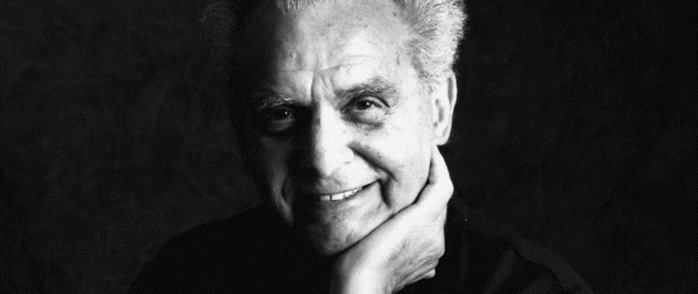
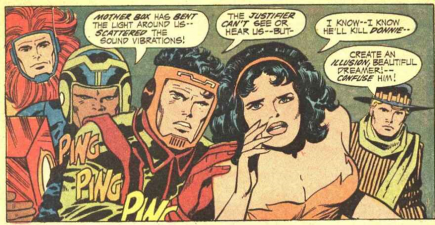
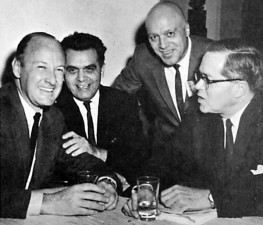
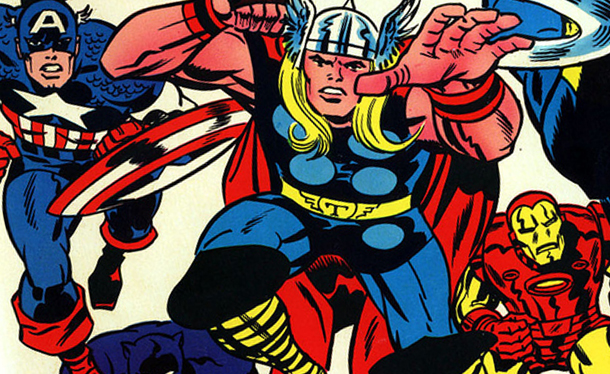
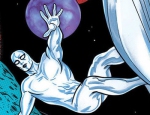
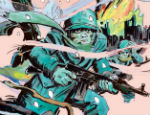
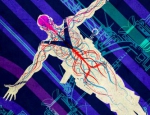
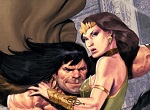
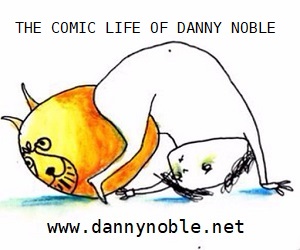


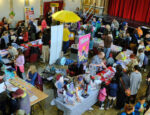
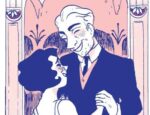
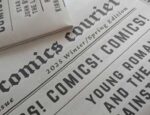
great interview!